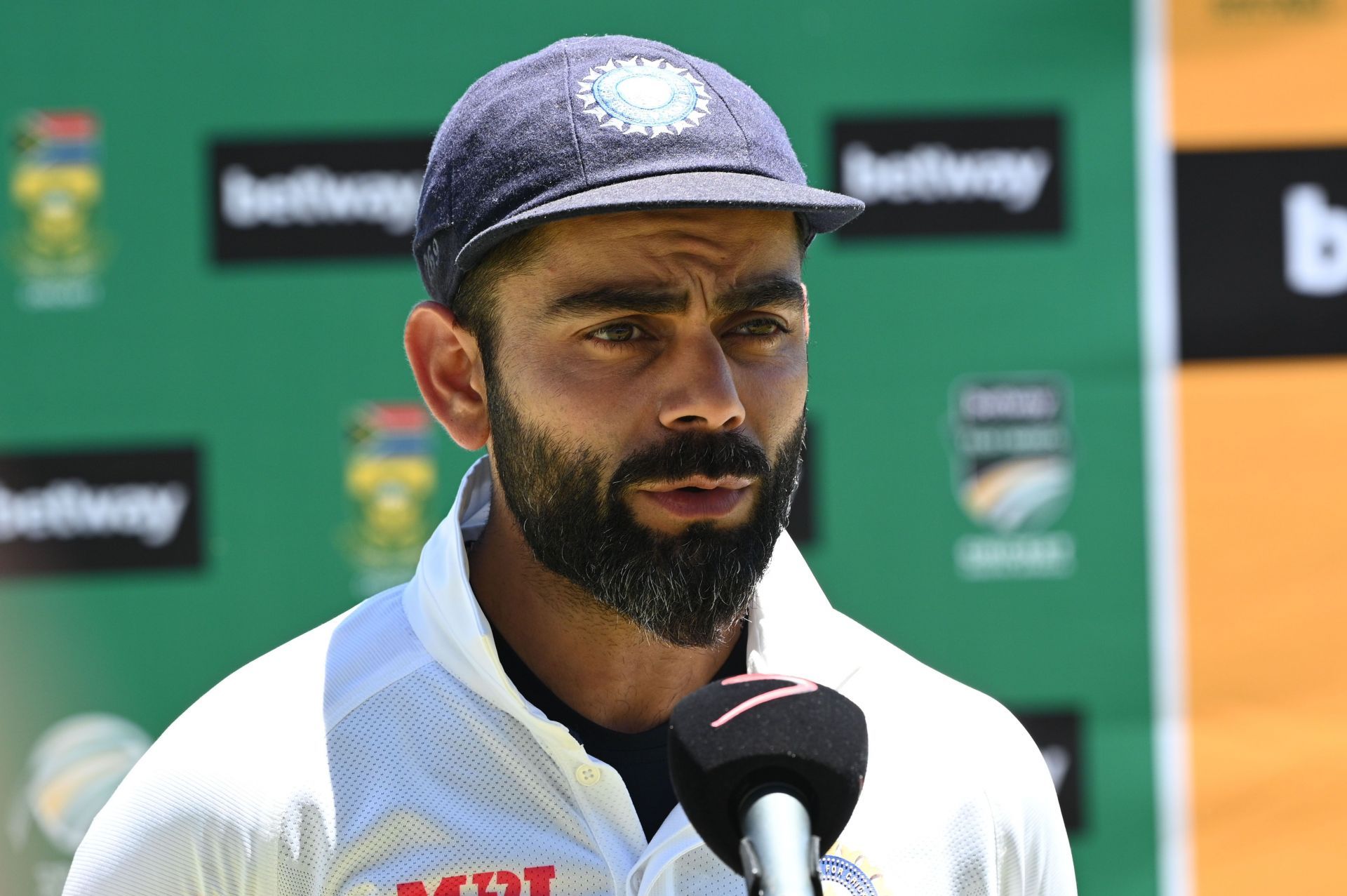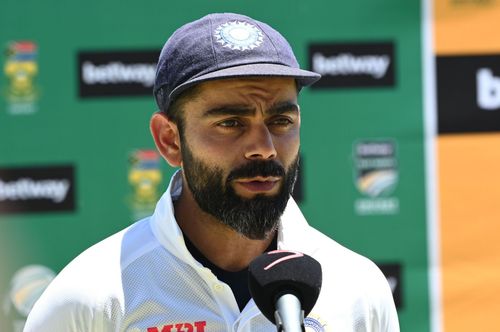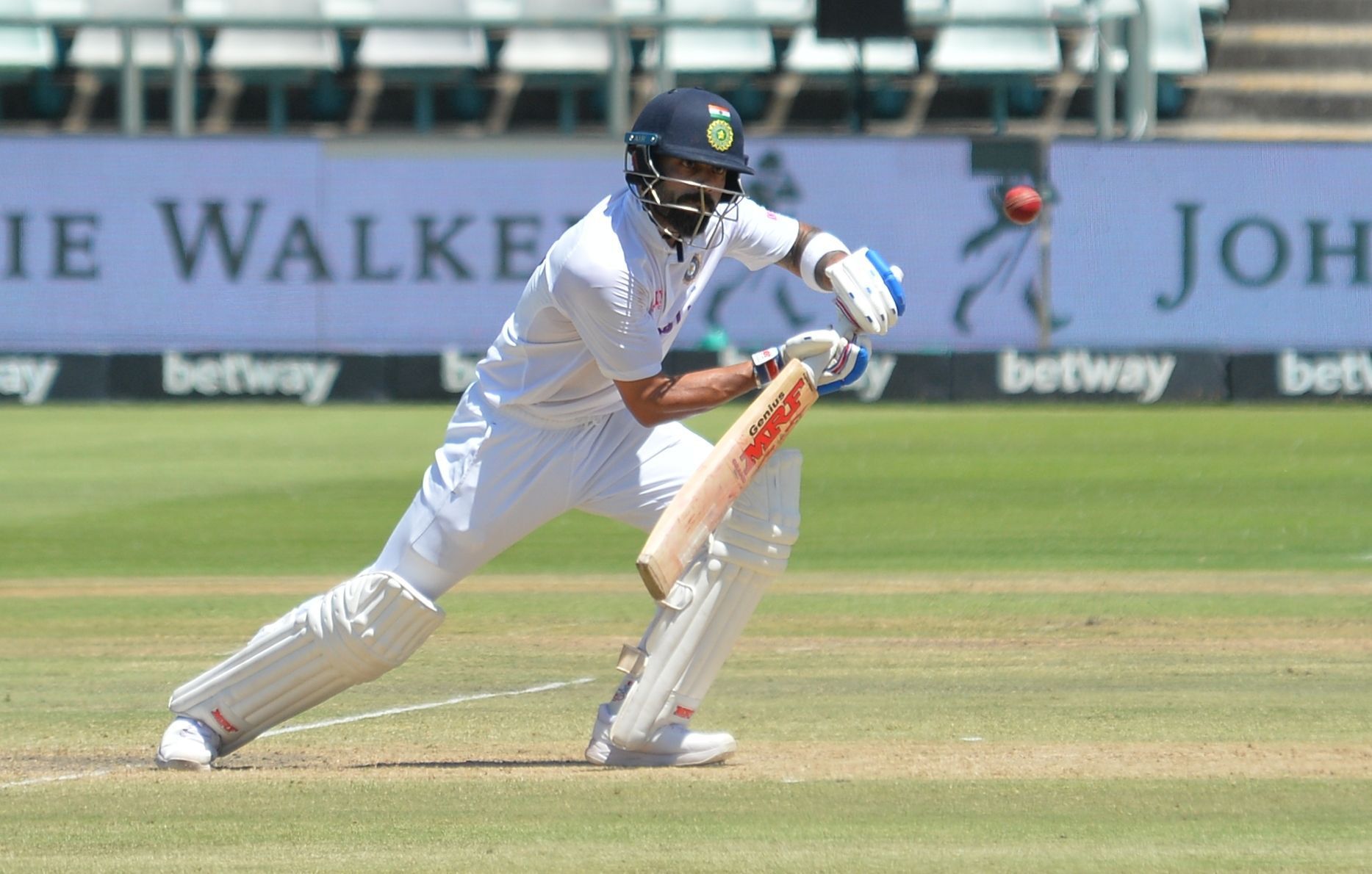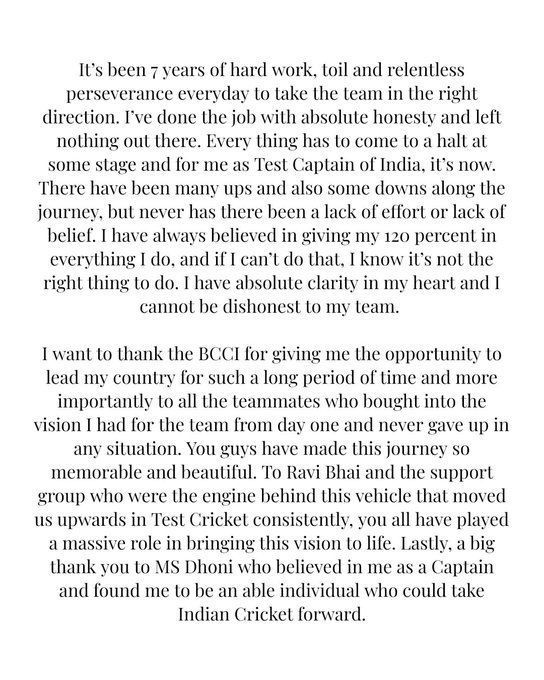
Virat Kohli's resignation hints something else may have been bubbling under the surface

16th September, 2021, the world feels normal, with Virat Kohli being the undisputed king of Indian cricket and the person calling the shots for the most powerful cricketing outfit on the planet. Just a week ago, the Royal Challengers Bangalore batter led India to the brink of a Test series victory in England and seems to be completely invested in plotting a path to T20 World Cup glory.
Just as everyone is preparing for the mega event, though, a massive tremor is felt across the board. Not just in India but throughout the cricketing community.
Kohli, whose white ball captaincy, despite the lack of an ICC trophy, seemed sacrilegious, announces that he will be stepping down as T20I skipper. In a heartfelt social media post, he also hints that he remains focussed on captaining India in ODIs and Test cricket.
For nearly a month, that narrative dominates the mind of every Indian cricket enthusiast. The T20 World Cup, which could possibly have been Kohli's crowning glory as limited overs captain, has suddenly become last-chance saloon. There are a few reports doing the rounds of how the top brass was unhappy with the lack of trophies but at the time it seemed a narrative closer to fiction than reality.
The wheels, rather unexpectedly, come off at the T20 World Cup, meaning that the timing of his withdrawal as T20I captain comes under a massive scanner. Should he have waited until after the event to specify his intention to leave his post, or did he do the right thing all along?
Till December 2021, it seemed a move that was made in India's best interests. After all, there could be nothing wrong in one of the nation's most important players managing his workload and handing over the reins to a highly successful T20 captain (Rohit Sharma).
But then, the murmurs of discontent began surfacing. Sourav Ganguly, who also happens to be the BCCI President, came out and suggested that Kohli had gone against the board and the selectors' wishes by stepping aside. In a swift turn of events, Kohli was then "replaced" (sacked or any other similar term based on your taste) as ODI captain and that was perhaps the first signs that the wheels had begun coming off.
A lot of back and forth took place thereafter too. Kohli was adamant his decision to step down as T20I captain was received well, whereas the selectors and Ganguly thought it was a premature decision and one that Kohli, despite requests to reconsider, was steadfast upon.
To this day, no one knows what actually went down in that meeting. Some are led to believe that the former Indian captain took a knee-jerk call, whereas others are of the opinion that Ganguly and the selectors are probably not presenting the entire sequence of events. What was clear, though, was that Kohli, who has been India's poster boy, was no longer being accorded that pedestal. And more importantly, he wasn't as untouchable as it might have once seemed.
From that perspective, a Test series against a relatively inexperienced South African side was the perfect tonic for Kohli - the Test captain. Four years ago, the former RCB skipper had proclaimed that India's path to world domination would begin on those shores.
They lost that series 2-1 but had enhanced their reputation, meaning that when they toured Australia and England in the months that followed, there was palpable optimism that India could win, not just compete.

However, what was perceived as the ideal path to redemption quickly turned into the most unimaginable of nightmares. Not only did India lose the series despite going ahead, they were defeated in a manner that seemed eerily similar to how they had folded against the Proteas in 2018.
Virat Kohli lost his cool at Cape Town
If that wasn't enough, India, led by Kohli, also found time to lose their cool and paint themselves as sore losers. There might have been a technological goof-up, but the way the visitors handled themselves left plenty to be desired.
They criticised the broadcasters, offered a few sarcastic words to the match officials and even shouted at the stump mic, indicating that the cameras should also look at the way South Africa shined the ball, rather than just catching the opposition.
A remark that was uncalled for and one that didn't just take a dig at the ball-tampering scandal they uncovered in 2018, but also highlighted how frayed the tempers had become in the Indian camp.
This, in no way, is trying to defend what Kohli and the likes of KL Rahul, Mayank Agarwal and Ravichandran Ashwin did because, well, it wasn't a good look for any Test nation, let alone of India's ilk.
But now that the RCB batter has stepped away from Test captaincy too, you can probably understand what led to the outburst. Kohli was cornered, he felt his time was up if he didn't win, and he came out swinging, although it wasn't necessarily warranted.
The press conference that followed, as usual, had questions about Ajinkya Rahane and Cheteshwar Pujara's form. Over the past few months, Kohli has gotten used to dodging those questions, often waxing lyrical about their experience despite that ever materializing into tangible returns.
On this occasion, though, Kohli left the carrot dangling, quipping that their place in the side wasn't under his control and that it was the selection panel that would have the final say. In isolation, there's nothing wrong in that assumption but considering how the selection committee, the BCCI and Kohli haven't really looked eye to eye since September 2021, it may have been the straw that broke the camel's back.
So much so that when the former Indian captain resigned from Test captaincy, it didn't cause as many people to raise a furrowed brow - unlike what happened when he relinquished his post as T20I leader.
That then brings us to addressing the elephant in the room. What exactly has gone so pear-shaped in the past few months?
To be honest, there can't be a singular answer (whether right or wrong). Instead, it is a combination of factors such as Kohli wanting to manage his workload, him thinking that he could still dictate terms and the most powerful cricketing board on the planet flexing their muscles and telling Kohli that no individual is bigger than Indian cricket.
To an extent, there are many parties at fault for the way things have come to this stage. There could have been better communication between the BCCI and the player. There could've been more understanding on how such sensitive news could be structured so that it seemed better in the long run rather than a short-term fix. But most tellingly, the pros, the cons, the aftershocks and the health of Indian cricket should've been kept at the forefront.
There may be a few who might suggest that Kohli's antics at Cape Town led to him stepping down and that it was down to emotion. The former Indian captain, though, despite wearing his heart on his sleeve, is quite pragmatic too.
Had he felt he could've gone on and not been "dishonest" to those around him, he would've continued. The fact that Indian cricket finds itself at such a crossroad is indicative enough that something hasn't been right in the past five months.
Having said that, this could still be a very practical decision made by an extremely practical human being. He knows he can't play on forever and might want to optimize what remains of his international career. But the timing of everything hints that there could be something else bubbling under the surface.
It didn't have to end this way. Kohli, as things stand, is the most successful Test captain the country has seen all these years and has monopolized the top spot in the ICC Test rankings.
Yet, the moment it became a power struggle between him and the BCCI, and it became a matter of my word against his, cricketing achievements took a backseat. And that is perhaps the most unfortunate bit to accrue from this entire saga.
No one, not even Kohli, can win against the regime. That isn't just a takeaway. It's also a caveat for whoever steps into the helm - a caveat that tells them to enjoy every minute at the top because, well, the fall from grace and dip in stature is quite steep.
